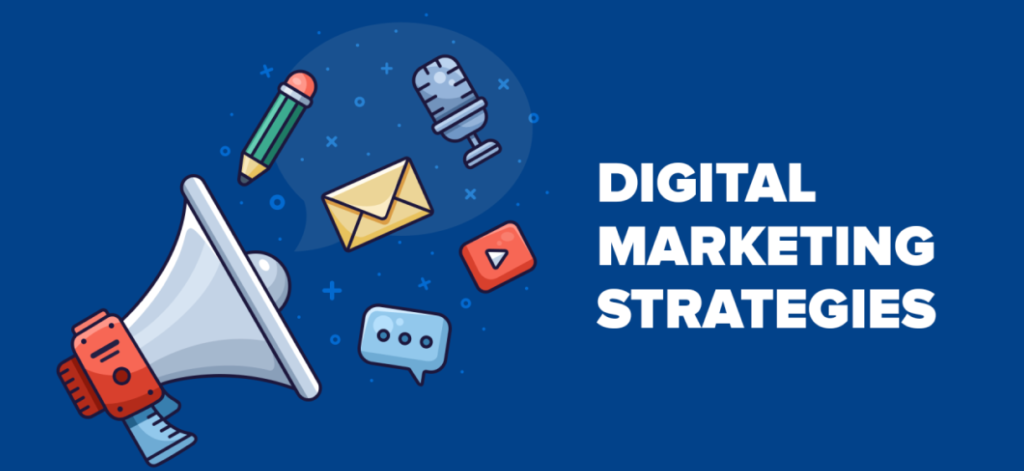Introduction
In today’s digital age, small businesses must leverage digital marketing to survive and thrive. Unlike large corporations with unlimited marketing budgets, small businesses need cost-effective strategies to reach their target audience and compete in the marketplace. Digital marketing levels the playing field by offering various online channels and tools to enhance brand visibility, engage customers, and drive sales. This article explores why digital marketing is crucial for small businesses and how it can fuel growth and success.
1. Cost-Effective Marketing Strategy
Traditional marketing methods like TV ads, billboards, and print advertisements require a significant investment, which may not be feasible for small businesses. Digital marketing offers an affordable alternative with a better return on investment (ROI).
Benefits:
- Lower Costs – Social media marketing, email campaigns, and content marketing require minimal investment compared to traditional marketing.
- Better Targeting – Digital marketing enables businesses to reach specific demographics, ensuring higher conversion rates.
- Measurable Results – Analytics tools track performance, allowing businesses to optimize strategies in real-time.
2. Increased Brand Awareness
Building brand recognition is crucial for small businesses. Digital marketing enables businesses to showcase their brand, products, and services to a wider audience.
Strategies for Brand Awareness:
- Social Media Marketing – Platforms like Facebook, Instagram, and LinkedIn allow businesses to engage with potential customers and build trust.
- Content Marketing – Blogging, infographics, and videos help position businesses as industry experts.
- Search Engine Optimization (SEO) – A strong online presence improves rankings on search engines, making businesses more discoverable.
3. Enhanced Customer Engagement
Engaging with customers is easier and more effective through digital channels. Digital marketing allows businesses to connect with their audience in real-time.
How to Engage Customers:
- Social Media Interaction – Responding to comments, messages, and reviews fosters relationships.
- Personalized Email Campaigns – Sending targeted offers based on customer preferences increases engagement.
- Live Chat and Chatbots – Providing instant customer support enhances user experience and satisfaction.
4. Higher Conversion Rates
With the right digital marketing strategies, small businesses can generate leads and convert them into loyal customers.
Conversion-Boosting Techniques:
- Optimized Landing Pages – Clear call-to-action (CTA) and compelling content encourage conversions.
- Email Marketing – Sending follow-up emails and exclusive deals drives sales.
- Retargeting Ads – Re-engaging visitors who previously showed interest in products increases conversion chances.
5. Better Understanding of Target Audience
Data analytics in digital marketing provide valuable insights into customer behavior, preferences, and trends.
Tools for Audience Analysis:
- Google Analytics – Tracks website traffic and user behavior.
- Facebook Insights – Provides audience demographics and engagement metrics.
- Heatmaps – Show how users interact with website elements.
6. Competing with Larger Businesses
Digital marketing helps small businesses compete with industry giants by targeting niche markets and optimizing online presence.
Key Competitive Strategies:
- Local SEO – Optimizing for local searches helps small businesses rank higher in their area.
- Influencer Partnerships – Collaborating with micro-influencers can expand reach at a lower cost.
- Paid Advertising – Google Ads and Facebook Ads enable businesses to compete for targeted traffic.
7. Mobile Marketing Advantage
With the rise of mobile usage, businesses must adapt their strategies to reach mobile users effectively.
Mobile Marketing Strategies:
- Responsive Website Design – Ensuring the site is mobile-friendly improves user experience.
- SMS Marketing – Sending promotional messages directly to customers.
- Mobile Apps – Offering an app enhances engagement and brand loyalty.
8. Building Long-Term Customer Relationships
Customer retention is just as important as acquisition. Digital marketing fosters lasting relationships with customers through consistent engagement and personalized experiences.
Strategies for Customer Retention:
- Loyalty Programs – Rewarding repeat customers with discounts and special offers.
- Regular Content Updates – Keeping the audience informed and engaged with fresh content.
- Social Proof and Testimonials – Showcasing positive reviews builds credibility and trust.
9. Adaptability to Market Changes
Digital marketing provides flexibility, allowing businesses to quickly adapt to industry trends and consumer behavior.
How to Stay Updated:
- Regularly Monitoring Trends – Following industry updates and adapting marketing strategies accordingly.
- A/B Testing – Experimenting with different approaches to determine what works best.
- Continuous Learning – Staying informed about new digital marketing tools and techniques.
Conclusion
Digital marketing is no longer optional for small businesses—it’s a necessity. From cost-effective advertising and enhanced customer engagement to data-driven decision-making and competitive advantages, digital marketing provides small businesses with the tools they need to succeed. By leveraging the right digital marketing strategies, small businesses can increase brand awareness, attract more customers, and achieve long-term growth in an ever-evolving digital landscape.


